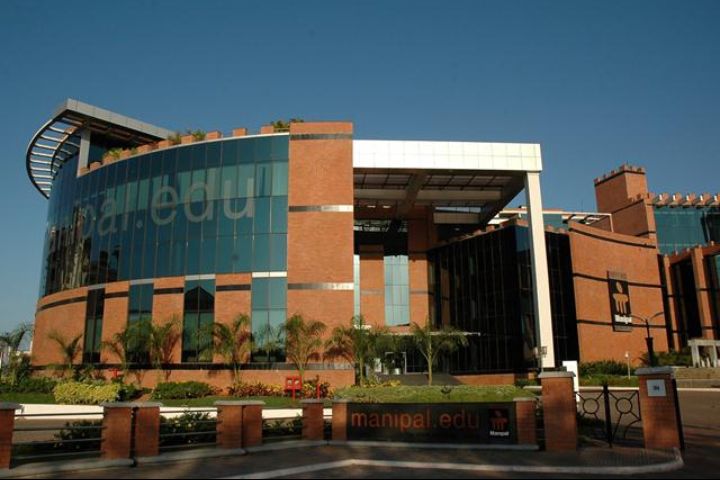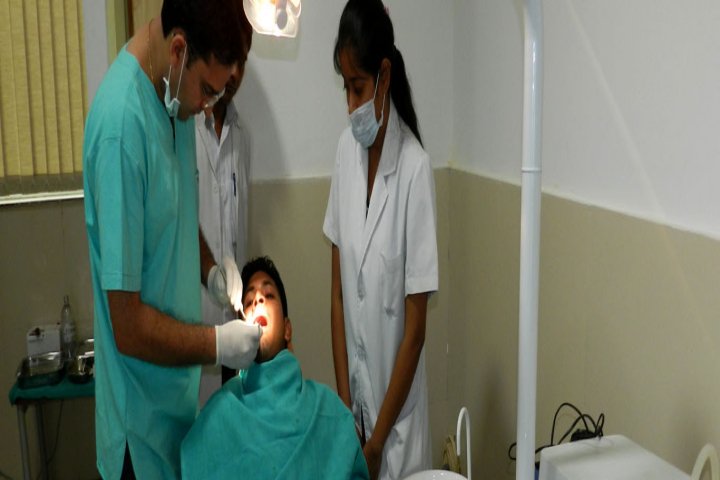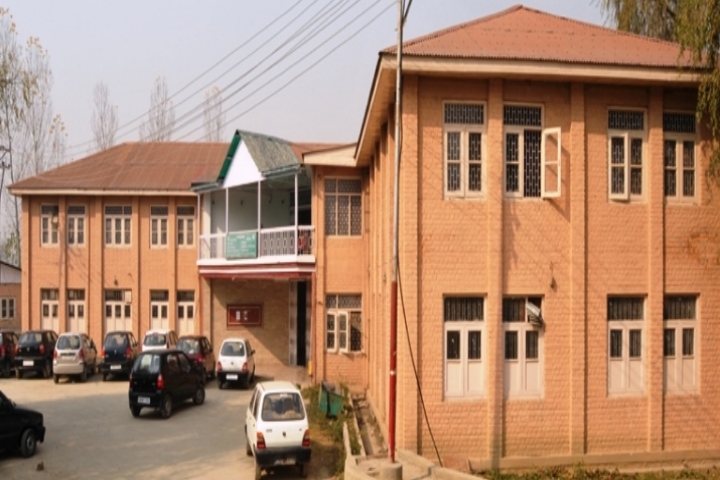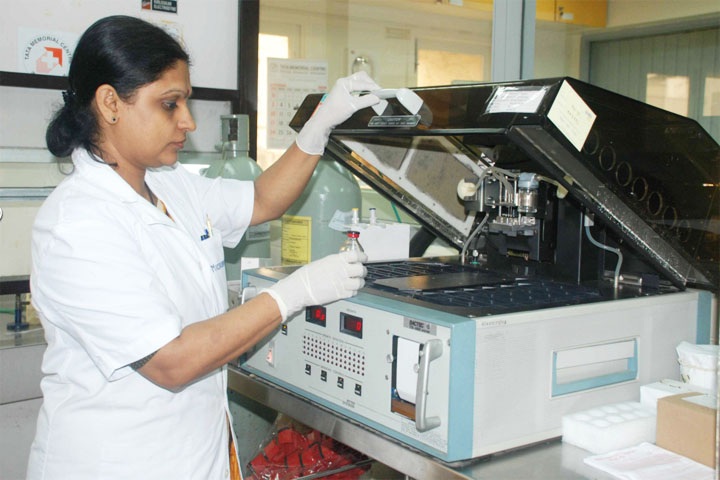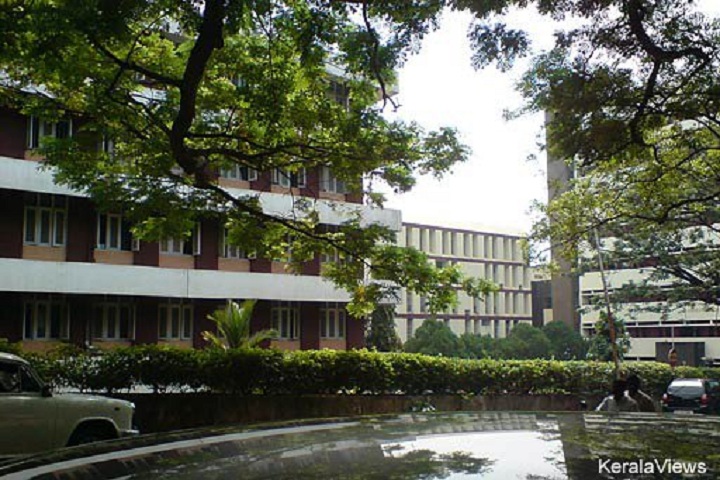
Radiotherapy Course Details - Fees, Subjects, Syllabus, Duration, Eligibility, Career Scope
Degrees offered: M.D., B.Sc., Diploma, BS, B.Sc.(Hons)
What is Radiotherapy
Radiotherapy is a specialised field in medical science focused on the use of high-energy radiation to treat cancer and other diseases. It involves the precise targeting of radiation to destroy or control malignant cells while minimising harm to surrounding healthy tissues. Radiotherapy plays a vital role in modern cancer care, either alone or in combination with surgery and chemotherapy.
Radiotherapy is offered at both undergraduate and postgraduate levels in India through various medical and allied health institutions. Students aspiring to pursue UG courses must complete Class 12 in the science stream with Biology. For PG courses, candidates must hold a bachelor’s degree in Radiotherapy, Radiologic Technology, or a related medical discipline.
The field offers specialisations such as Radiation Physics, Brachytherapy, Medical Dosimetry, and Oncology Imaging. Graduates can work as Radiation Therapists, Medical Dosimetrists, Radiologic Technologists, and Oncology Treatment Planners in cancer hospitals, radiotherapy centres, and research institutes.
Important Dates: Radiotherapy
NEET PG- August 03, 2025
Radiotherapy – Highlights
Radiotherapy is a crucial discipline within paramedical and oncology sciences that focuses on treating cancer and certain non-malignant conditions using controlled radiation. It combines medical knowledge with technology to provide targeted, patient-specific treatments. Below are the key highlights of the Radiotherapy course:
| Particulars | Fees |
|---|---|
Branch Name | Radiotherapy |
Degree | |
Eligibility | UG: Class 12th in Science with Biology or Physics, Chemistry PG: Bachelor’s degree in Radiotherapy or allied health sciences |
Admission Process | Based on Entrance Exams or Merit |
Entrance Exams | NEET UG, CUET UG, CUET PG, NEET PG |
Course Fees | Rs. 20,000 to Rs. 50 lakhs (varies by level and institution) |
Job Profiles | Radiation Therapy Technologists, Dosimetrist, Radiation Oncologists, Medical Physicists |
Average Salary | Rs. 2.5 to Rs. 8 Lakhs per annum |
Recruiting Companies | Tata Memorial Hospital, Apollo Cancer Centres, AIIMS, Fortis, HCG, Max, Medanta |
Specialisations or Similar
Radiotherapy offers a range of specialised areas for students who wish to focus on specific aspects of cancer treatment and radiation science. These specialisations enhance their expertise in precise therapy delivery, radiation safety, and cancer care. Based on career goals and interests, candidates can choose fields that offer both clinical and research opportunities.
Radiation Physics | Brachytherapy |
Medical Dosimetry | Radiation Therapy Planning |
Clinical Oncology | Radiological Techniques |
Top Private Radiotherapy Colleges in India with Fees
India has several reputed private colleges offering Radiotherapy courses for students aspiring to build a career in cancer treatment and radiation sciences. These institutions provide modern facilities, clinical training, and experienced faculty. Below is a list of some top private colleges in India offering Radiotherapy programmes.
| Top Colleges | Fees |
|---|---|
Rs. 6.60 Lakhs | |
Rs. 2.75 Lakhs | |
Rs. 59.40 Lakhs | |
Rs. 2.80 Lakhs | |
Rs. 40,000 | |
Rs. 19.50 Lakhs | |
Rs. 43.13 Lakhs | |
Rs. 2.25 Lakhs | |
Rs. 4.13 Lakhs | |
Rs. 2.10 Lakhs |
Note: The fee structure provided above can be for any particular Radiotherapy Course (Diploma/UG & PG or MD Degree).
Top Government Radiotherapy Colleges in India with Fees
Government colleges in India offer Radiotherapy courses at affordable fees while maintaining high academic and clinical standards. These institutions often have strong hospital affiliations, providing students with practical exposure and research opportunities. Below is a list of some top government colleges offering Radiotherapy programmes across the country.
| Top Colleges | Fees |
|---|---|
Rs. 1,200 | |
Rs. 1,200 | |
Rs. 1,200 | |
Rs. 94,500 | |
Rs. 57,440 | |
Rs. 1.08 Lakhs | |
Rs. 1 Lakh | |
Rs. 3.12 Lakhs | |
Rs. 1.12 Lakhs | |
Rs. 2.05 Lakhs |
Eligibility Criteria (UG & PG) of Radiotherapy
To pursue a Radiotherapy course, candidates must meet certain educational qualifications at both undergraduate and postgraduate levels. While eligibility criteria may differ slightly across institutions, general requirements remain consistent. Here are the common eligibility criteria for UG and PG Radiotherapy programmes offered by various medical and allied health institutions in India.
Undergraduate Level
At the undergraduate level, candidates aspiring to pursue a Radiotherapy course must typically complete their class 12 education in the science stream, particularly with subjects like Physics, Chemistry, and Biology. A minimum aggregate percentage is usually required, and eligibility criteria may differ slightly depending on the institution offering the programme.
- Candidates must have passed 10+2 from a recognised board with Physics, Chemistry, and Biology as mandatory subjects.
- They must have scored a minimum aggregate of 50 per cent.
Entrance Exam for the Undergraduate Level
To gain admission into undergraduate Radiotherapy programmes, candidates are generally required to appear for entrance exams. While NEET is a popular national-level exam for medical courses, some institutions may conduct their own entrance tests. The specific exam requirement depends on the college or university offering the course.
| Exam Name | Level | Conducting Body | Exam Schedule |
|---|---|---|---|
Exam Name | Level | Conducting Body | Exam Schedule |
National | NTA | ||
National Level | NTA |
Postgraduate Level
To pursue postgraduate Radiotherapy courses, candidates typically need a relevant undergraduate degree, such as a BSc in Radiotherapy, with a minimum required percentage from a recognised university. For an MD in Radiotherapy, an MBBS degree approved by the Medical Council of India is generally required. These are the general eligibility criteria for PG courses and MD.
- The candidate must have passed a bachelor’s degree in science fields, such as a BSc in radiotherapy, with a minimum score of 50 per cent.
- Students who want to pursue the course of Doctor of Medicine must have a radiotherapy degree in MBBS from a university recognised by the Medical Council of India with a minimum aggregate of 50 per cent.
Entrance Exam For Postgraduate Level
For admission to postgraduate Radiotherapy programmes, candidates usually need to qualify for specific entrance exams. NEET PG is a common national-level test, but some universities may hold their own exams like AEEL. The choice of exam varies depending on the institution’s admission criteria and academic structure.
| Exam Name | Level | Conducting Body | Exam Schedule |
|---|---|---|---|
National | NBE | ||
National | NTA | ||
National | AIIMS Delhi | ||
University Exam | Amrita Vishwa Vidyapeetham | - |
College Predictors VIEW ALL
Scope of Radiotherapy in India and Abroad
Radiotherapy plays a critical role in the treatment of cancer, which remains one of the leading causes of death globally. As cancer cases rise, the demand for skilled radiotherapy professionals continues to grow. This has led to the expansion of radiotherapy units across government and private hospitals in India.
With ongoing advancements in medical technology, radiotherapy now offers more precise and safer treatment options. This field offers promising career growth for BMRT graduates in clinical settings, research institutions, and cancer care centres. As most radiotherapy services are concentrated in urban areas, students aiming to work in Tier-1 cities will find abundant opportunities.
Radiotherapy provides a stable and respectable career path with structured working hours and the chance to contribute significantly to patient care and recovery.
Course Fees Radiotherapy
| Minimum Fees | Maximum Fees | |||
|---|---|---|---|---|
| Private | Government | Private | Government | |
| UG | ||||
| PG | ||||
| DIPLOMA | ||||
Course Subjects
The Radiotherapy course syllabus is designed to provide students with a blend of theoretical knowledge and hands-on training in cancer treatment techniques, radiation physics, and patient care. It evolves with medical advancements and industry needs. Here are the undergraduate and postgraduate course syllabi for reference to understand subject progression.
For UG Course
This is the BSc Radiotherapy Technology course syllabus offered by Sunrise University, Alwar. The programme is structured over three years and focuses on theoretical knowledge and practical training in radiotherapy techniques, patient care, radiation safety, and clinical applications, aiming to prepare students for professional roles in cancer diagnosis and treatment.
First Year | |
Human Anatomy, Physiology | English |
Radiation Physics & Basics of clinical radiography/imaging | Basics of Computer |
Radiotherapy Physics & Principles of Radiotherapy | - |
Second Year | |
Tumour Pathology and Radiotherapy Applications | Medical Ethics and Patient Care |
Radiotherapy Equipment, Applications &Maintenance. | General Principle of Hospital Practices |
Radiotherapy Techniques | - |
Third Year | |
Recent Advances in Radiotherapy Techniques | Log Book |
Patient care relevant to Radiotherapy | Quality Assurance, Radiobiology & Radiation Safety in Radiotherapy |
For PG Course
This is the MSc Medical Radiation Physics course syllabus offered by Manipal Academy of Higher Education (MAHE). The curriculum spans four semesters, covering core concepts in radiation physics, medical imaging, dosimetry, safety regulations, and practical training. This comprehensive programme prepares postgraduates for advanced clinical and research roles in radiotherapy.
Semester 1 | Semester 2 |
Anatomy | Ethics & Pedagogy |
Physiology | Radiation Physics, Radiation Quantities and Units |
Advanced Biostatistics and Research Methodology | Radiation Sources and Radiation Generating Equipment |
Mathematical Methods in Physics | Radiation Detection, Measurement and Instrumentation |
Electronics | Radiobiology and Radiobiological Basis of Radiotherapy |
Modern Physics | Practical - Radiotherapy Quality Assurance |
Fundamentals of Computers and Programming | - |
Semester 3 | Semester 4 |
Physics of Medical Imaging | Recent Advances in Radiotherapy |
Physics of Radiotherapy | Clinical Radiation Dosimetry and Radiation Standardisation |
Physics in Nuclear Medicine | Field Study |
Radiation Safety and Regulations | Practical - Treatment planning |
Practical - Basics of treatment planning | Research Project-II |
Research Project-I | - |
Careers in Radiotherapy
Radiotherapy is a critical discipline in modern cancer care and treatment. With the growing burden of cancer and other chronic conditions, the demand for skilled radiotherapy professionals is steadily rising. Governments and private healthcare providers are investing in advanced radiological services to expand access, especially in rural and semi-urban regions.
As healthcare systems adopt precision-based and technology-driven therapies, radiotherapy professionals play a vital role in planning and delivering targeted treatments using sophisticated machines. Their expertise ensures accurate dosage and patient safety during radiation procedures in oncology units, cancer research centres, and diagnostic imaging facilities.
Currently, various institutions in India and abroad offer recognised radiotherapy programmes at diploma, undergraduate, and postgraduate levels. These courses prepare students in radiological physics, treatment planning, and radiation safety, enabling them to build careers as Radiation Therapy Technologists, Radiology Officers, or Oncology Imaging Experts.
Upcoming trends
Radiotherapy is witnessing rapid advancements driven by emerging technologies and personalised treatment approaches. Modern innovations are making cancer care more precise, effective, and patient-specific. The integration of AI, imaging advancements, and targeted therapy techniques is significantly enhancing the accuracy and outcomes of radiotherapy treatment, making it a transformative branch of oncology.
- Image-Guided Radiotherapy (IGRT) for real-time treatment precision
- Proton Beam Therapy for targeted cancer care with minimal side effects
- Adaptive Radiotherapy using AI to adjust treatment in real time
- Integration of Molecular Imaging for better tumour characterisation
- Radiomics and Big Data for Predicting Treatment Response
- Personalised Radiotherapy based on genetic tumour profiling
- Automation and Robotics in radiotherapy planning and delivery
Job Profiles and Top Recruiters
Radiotherapy offers a dynamic and rewarding career path within cancer treatment and medical imaging. With advancements in technology and increasing cancer cases, skilled professionals are in high demand across hospitals and cancer care centres. This field combines patient care with technical expertise. Here are some job roles in radiotherapy.
| Job Roles | Description |
|---|---|
Radiation Therapy operates linear accelerators to administer targeted radiation. They ensure precise treatment delivery and patient alignment. | |
Medical Physicists | Medical Physicists develop radiation dose calculations and calibrate therapy machines. They ensure safety and accuracy in all treatment procedures. |
Dosimetrists | Dosimetrists design customised radiation treatment plans based on imaging data. They collaborate with oncologists and physicists to ensure optimal care. |
Radiation Oncologists | Radiation Oncologists are specialist physicians who plan and supervise radiation treatments. They evaluate treatment responses and modify protocols accordingly. |
Radiotherapy Technicians | Radiotherapy Technicians assist in setting up machines and positioning patients. They help maintain treatment consistency and provide technical support. |
Radiation Safety Officers | Radiation Safety Officers oversee radiation use compliance and safety standards. They monitor exposure levels and conduct regular safety audits. |
Top Recruiters
- Tata Memorial Hospital
- Apollo Cancer Centres
- AIIMS
- Fortis
- HCG
- Max
- Medanta
Average Salary
Radiotherapy offers promising earning potential for qualified professionals, making it a popular choice among science students after 12. With advancements in cancer care and diagnostic technologies, skilled individuals are in high demand across hospitals and oncology centres. Salary varies based on education, experience, and employer. Here are the average salaries per annum.
| Job Roles | Average Salary (LPA) |
|---|---|
Radiation Therapy Technologists | Rs. 3.9 LPA |
Medical Physicists | Rs. 7.4 LPA |
Dosimetrists | Rs. 5.9 LPA |
Radiation Oncologists | Rs. 15 LPA |
Radiotherapy Technicians | Rs. 2 LPA |
Radiation Safety Officers | Rs. 6.7 LPA |
Source: AmbitionBox, Glassdoor
Required Skillset for Radiotherapy
To succeed in the field of Radiotherapy, candidates must possess a combination of clinical, technical, and interpersonal skills. These competencies ensure the safe and effective delivery of radiation treatment, patient care, and collaboration with oncology teams. Precision, empathy, and strong communication are essential in helping patients through complex treatments. Here are some essential skills for Radiotherapy professionals:
- Radiation Equipment Handling and Operation
- Understanding of Radiation Safety Protocols
- Knowledge of Human Anatomy and Oncology
- Attention to Detail and Accuracy in Dosage Delivery
- Patient Communication and Emotional Support
- Monitoring and Record-Keeping Skills
- Teamwork and Interdisciplinary Coordination
- Critical Thinking and Problem-Solving
- Ethical Decision-Making in Patient Care
- Time Management and Organisational Skills
Course Curriculum for Radiotherapy
The radiotherapy curriculum combines theoretical instruction with practical clinical training. Students gain comprehensive knowledge in radiation physics, human anatomy, and tumour pathology, while also learning how to manage patient safety, treatment planning, and radiation dosage. Internships and hands-on experience under expert guidance are integral to the course. Key areas covered include:
- Radiation Physics and Radiotherapy Principles
- Human Anatomy and Physiology
- Tumour Pathology and Oncology
- Radiotherapy Techniques and Equipment Handling
- Radiobiology and Radiation Safety
- Patient Care and Medical Ethics
- Quality Assurance in Radiotherapy
- Clinical Practice and Internships
Popular Radiotherapy Entrance Exams in India
Frequently Asked Questions (FAQs)
Question: Is Radiotherapy a good career option in India?
Answer :
Yes, with the increasing number of cancer treatment centres and growing awareness of radiological care, Radiotherapy offers stable job opportunities, especially in urban healthcare institutions.
Question: Which course is better, Diploma or Bachelor’s in radiotherapy?
Answer :
Radiotherapists work under radiotherapy Oncologist, they extensively work to treat cancer patients. They should have sound knowledge of radiotherapy as their job also includes operating machines, such as linear accelerators thus to be successful in this field you should at least have a Bachelor’s degree.
Question: What are the career opportunities after completing a Radiotherapy course?
Answer :
Graduates can work as Radiation Therapy Technologists, Radiotherapy Technicians, Medical Physicists, Dosimetrists, or Radiation Safety Officers in hospitals, cancer centres, or diagnostic labs.
Question: Is NEET required for admission into Radiotherapy courses?
Answer :
NEET is not mandatory for all Radiotherapy courses, but some institutes may consider NEET or other entrance scores. Others may conduct their own tests or rely on Class 12 marks.
Question: What is the average fee for radiotherapy courses?
Answer :
The fee structure of the radiotherapy courses is dependent solely on the college you’re seeking admission in, however, it may cost up to Rs. 80,000 per year.
Question: What is the eligibility to apply for a BSc in Radiotherapy?
Answer :
To apply for a BSc in Radiotherapy, candidates must have passed Class 12 with Physics, Chemistry, and Biology. Some universities may also conduct entrance exams or consider merit-based admission.



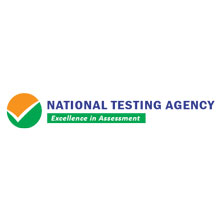

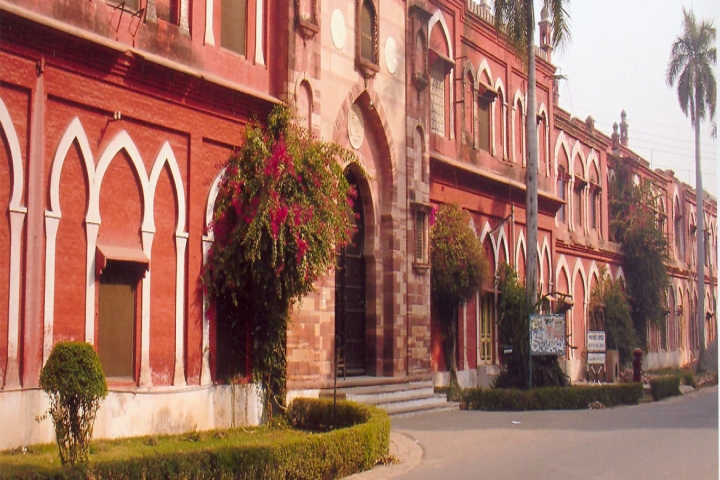
.jpg)
